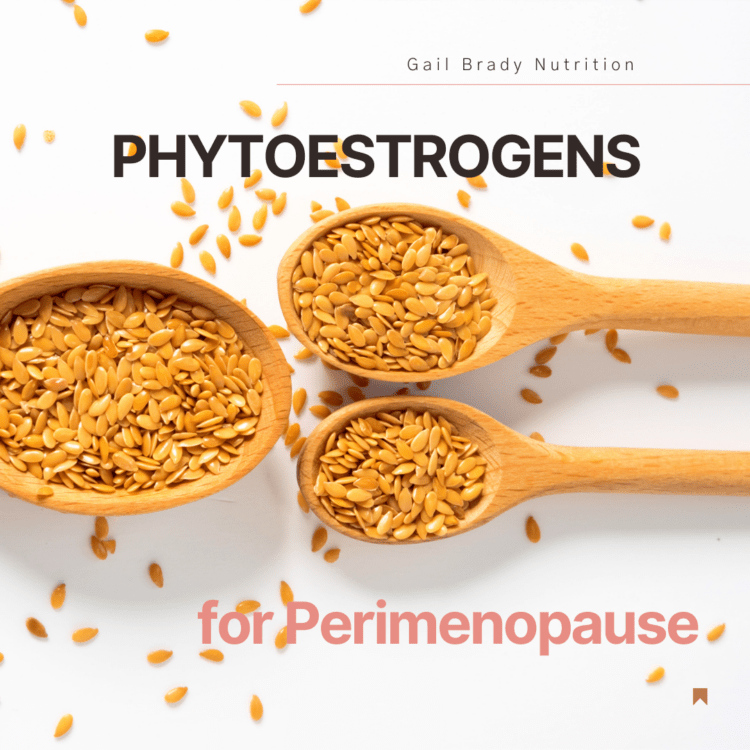Phytoestrogens are plant-based compounds that have a similar chemical structure to the oestrogen made in your body.
Because of this, they are able to attach to the same receptor sites as oestrogen but have a much weaker effect.
This could be especially beneficial during perimenopause when oestrogen levels fluctuate wildly and are high in relation to progesterone.
Some of the symptoms of high levels of oestrogen include;
- heavy periods
- tender breasts
- bloating
- mood swings
- weight gain
In this situation, phytoestrogens could have an anti-oestrogen effect and help to manage hormonal imbalances.
Although findings are mixed, there is also some evidence to suggest that phytoestrogens could reduce hot flushes and night sweats.
Two of the foods containing the highest amount of phytoestrogens are flaxseeds and soya products (miso, tempeh, natto, edamame beans, and tofu). I would always recommend using organic soy products to avoid chemicals often used in processing.
Smaller amounts can be found in lentils, chickpeas, sesame seeds, fennel and broccoli.
These types of foods can easily be added to your diet in a number of ways;
- Flaxseeds can be added to yoghurt, smoothies, soups, and salads. They can be used in baking too. To preserve their freshness, it is best to buy the whole seed and grind a small amount in a coffee grinder or small food processor and keep them in the fridge. Click here to find out some extra benefits of flaxseeds.
- Add organic firm tofu or tempeh to a stir fry. You can buy blocks that are already seasoned too.
- Try scrambled tofu for breakfast or lunch. Just use like eggs and use your favourite seasoning. Pinterest has loads of recipes to try like this one
- Add some soya nuts to your salad. You can find them at health food stores.
- Keep edamame beans in the freezer and heat a pan with some tamari (like soy sauce but gluten-free) sauce for a delicious snack
NB Although the research is not clear, it may be best to avoid soya foods if you have a history of breast cancer. Please consult your healthcare provider.




